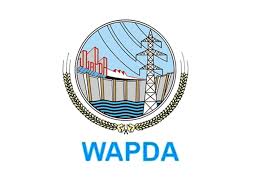ISLAMABAD: Petroleum Division has warned that gas prices may need to be increased from January 1, 2026, if urgent policy decisions are not taken to stop the diversion of $1 billion worth of RLNG—meant for power plants—which has already pushed Pakistan State Oil (PSO) to the brink of insolvency and left both Sui companies facing defaults.
Background discussions with stakeholders from the energy sector reveal that deviations from RLNG procurement contracts by “must-run” power plants, coupled with inefficiencies in the power sector, have worsened the situation for the petroleum sector. Insiders warned that the power sector’s mismanagement threatens to sink the entire energy sector.
“The IMF has made it clear that the gas sector’s circular debt flow must be reduced to zero. If diversion of RLNG worth $1 billion continues to other sectors, gas tariffs will have to be revised upward from January 1, 2026,” an official source said.
Prime Minister Shehbaz Sharif has also been briefed on the crisis, with officials pointing to the power sector’s failure to meet KPIs as the main cause.
Currently, a high-level committee headed by Petroleum Minister Ali Pervaiz Malik, assisted by four subcommittees, is working on a plan to address the crisis.
“Power Division has made a mockery of the system. They are celebrating ‘good performance’ while blatantly deviating from RLNG contracts,” said one industry stakeholder on condition of anonymity. According to him, RLNG diversion has reached Rs 200–250 billion, while production of 300 MMCFD from local gas wells has been suspended.
Stakeholders attribute the crisis to the absence of a comprehensive national energy policy, noting that the petroleum sector is being forced to shoulder the burden of the power sector.
Meanwhile, reports suggest that a so-called “Magician” in the corridors of power is promoting a “homemade” formula to eliminate circular debt. Insiders claim that decisions taken by the Energy Sector Task Force have only worsened the crisis.
Petroleum Division is expected to finalize its Annual Delivery Program (ADP) in September–October 2025. It has requested Power Division to provide final RLNG demand figures for its plants, stressing that any further deviations will not be allowed. Failure to offtake the contracted volume not only chokes SNGPL’s pipeline but also results in surplus RLNG being diverted to domestic and other sectors. Petroleum Division has already sent a summary to the ECC for approval of domestic RLNG connections.
Officials clarified that Pakistan will only have flexibility in LNG pricing when its long-term contracts with Qatar reach their price-opener clause in March 2026. However, negotiations will take at least six months, meaning any relief would materialize only in 2027.
“If the current RLNG consumption pattern in the power sector continues, Petroleum Division’s entities face potential losses of \$2–2.5 billion by 2027. Who will absorb this amount?” an insider asked. This is why Petroleum Division is seeking a viable mechanism to address the Rs 2.6 trillion gas sector circular debt before finalizing RLNG cargo schedules with Qatar.
The ADP in LNG refers to the annual schedule for LNG deliveries to customers, factoring in long-term contracts, spot market sales, inventory, and terminal capacity.
Petroleum Division is of the view that the power sector must clearly decide its offtake plan as gas sector can accommodate 10–15 percent losses, but not 100 percent.
They added that there is currently no loss on spot LNG sales. If PSO bears a Rs 20 billion loss while local gas wells are restored, the present Rs 250 billion loss could be reduced by Rs 100 billion.
In another alarming development, Northern Power Generation Company (Genco-III) has to pay Rs 150 billion to PSO. Although the company received this amount under the Renegotiated Settlement Agreement (RSA) with the government, insiders allege it was spent on salaries and other expenses instead of clearing dues to the oil supplier. Additionally, the Federal Board of Revenue (FBR) has defaulted on refunds of Rs 70 billion to PSO.
On the issue of $5 billion refinery upgrades, IMF has raised concerns, saying FBR is unlikely to refund input claims and suggesting an alternate mechanism. Previously, Petroleum Division secured Rs 34 billion for refineries by raising the Inland Freight Equalization Margin (IFEM), effectively passing the burden on to consumers.
“If the issue of refinery input costs remains unresolved, investment will stall and the nation will continue inhaling toxic air,” an official warned.















